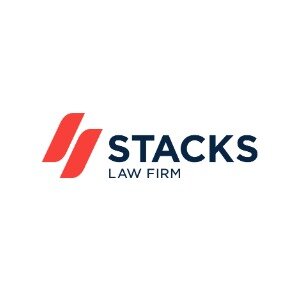Best Job Discrimination Lawyers in Forster
Share your needs with us, get contacted by law firms.
Free. Takes 2 min.
List of the best lawyers in Forster, Australia
About Job Discrimination Law in Forster, Australia
Job discrimination in Forster, Australia, falls under the broader umbrella of employment discrimination law. It is illegal for employers to treat employees or potential employees unfairly due to characteristics such as race, gender, age, disability, religion, or sexual orientation. The objective of these laws is to ensure a fair and equitable workplace environment where all individuals have equal opportunities based on their skills and merit.
Why You May Need a Lawyer
There are several situations in which individuals in Forster might require legal help regarding job discrimination:
- You've been denied a job or promotion due to discrimination.
- You've been unfairly treated at work based on a personal characteristic protected by law.
- You're experiencing harassment in the workplace without appropriate employer response.
- Your organization has retaliated against you for raising concerns about discrimination.
- You need guidance on filing a complaint with the appropriate governmental body.
Local Laws Overview
In Forster, job discrimination is primarily governed by the Fair Work Act 2009 and the Anti-Discrimination Act of New South Wales. Key provisions include:
- Prohibition of discrimination based on race, color, sex, sexual orientation, gender identity, disability, and other protected characteristics.
- Requirements for employers to take reasonable steps to prevent discrimination and harassment.
- Protections for employees who report or oppose discriminatory practices.
- Procedures for lodging complaints and seeking redress for violations.
Frequently Asked Questions
What constitutes job discrimination in Forster?
Job discrimination involves treating an employee or job applicant unfavorably because of personal characteristics protected by law, such as gender, race, or disability.
How can I prove discrimination occurred at work?
Evidence such as discriminatory comments, patterns of behavior, documentation of unfair treatment, and witness statements can help substantiate claims of discrimination.
What can I do if I experience discrimination at work?
If you experience discrimination, it's important to document incidents in detail, report the behavior through proper channels in your workplace, and consider seeking legal advice.
Can I be fired for reporting discrimination?
Under Australian law, it is illegal for employers to retaliate against employees who report discrimination. This includes termination, demotion, or any form of harassment.
Are there any time limits for filing a discrimination complaint?
Yes, there are time limits for filing complaints related to job discrimination, which vary depending on the specifics of the case and the governing laws. It's advisable to act promptly.
What types of compensation can I expect if my claim is successful?
Compensation for job discrimination claims can include financial redress for lost wages, damages for emotional distress, and, in some cases, punitive damages.
Is mediation an option in discrimination cases?
Mediation is often an available option and can be an effective way to resolve disputes without needing to go to court.
What role does the Fair Work Commission play in discrimination cases?
The Fair Work Commission provides advice and assistance to employees who believe they have experienced discrimination, and it can also handle certain disputes.
Can I handle a job discrimination case without a lawyer?
While it is possible to handle a discrimination case without a lawyer, having legal representation can be advantageous in understanding rights, filing complaints, and negotiating settlements.
Does job discrimination law apply to small businesses?
Yes, anti-discrimination laws in Australia apply to businesses of all sizes. Employers are required to uphold these laws, regardless of the number of employees.
Additional Resources
For those seeking further information or support, consider contacting these resources:
- Australian Human Rights Commission
- Anti-Discrimination Board of New South Wales
- Fair Work Ombudsman
- Legal Aid New South Wales
- Community legal centers in New South Wales
Next Steps
If you require legal assistance regarding job discrimination in Forster, consider the following steps:
- Gather all relevant documentation and evidence pertaining to your case.
- Contact a local employment law specialist or legal aid organization for advice.
- Explore mediation or conflict resolution services if appropriate.
- Consider filing a formal complaint with the Fair Work Commission or Anti-Discrimination Board if necessary.
Seeking professional legal advice can significantly enhance your understanding of the situation and optimize the outcomes of your case.
Lawzana helps you find the best lawyers and law firms in Forster through a curated and pre-screened list of qualified legal professionals. Our platform offers rankings and detailed profiles of attorneys and law firms, allowing you to compare based on practice areas, including Job Discrimination, experience, and client feedback.
Each profile includes a description of the firm's areas of practice, client reviews, team members and partners, year of establishment, spoken languages, office locations, contact information, social media presence, and any published articles or resources. Most firms on our platform speak English and are experienced in both local and international legal matters.
Get a quote from top-rated law firms in Forster, Australia — quickly, securely, and without unnecessary hassle.
Disclaimer:
The information provided on this page is for general informational purposes only and does not constitute legal advice. While we strive to ensure the accuracy and relevance of the content, legal information may change over time, and interpretations of the law can vary. You should always consult with a qualified legal professional for advice specific to your situation.
We disclaim all liability for actions taken or not taken based on the content of this page. If you believe any information is incorrect or outdated, please contact us, and we will review and update it where appropriate.








